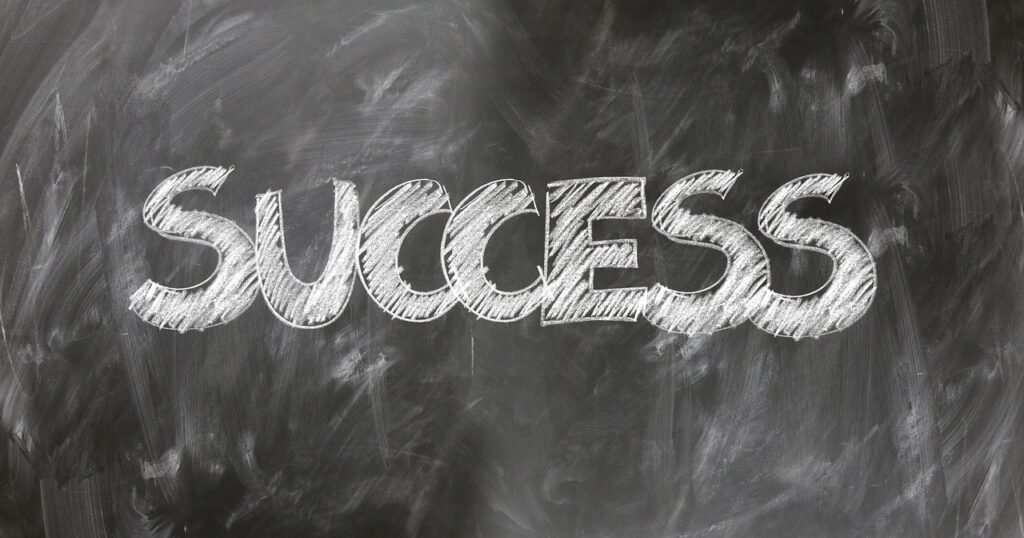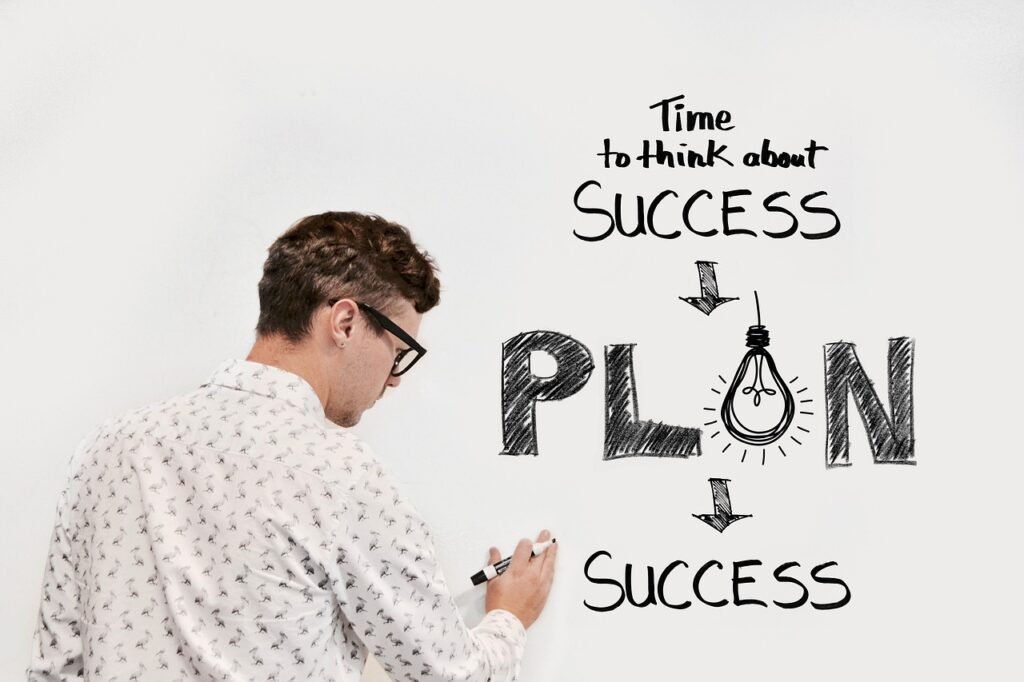
Introduction to Habits for Achieving Success

The journey to achieving success starts with cultivating the right habits.
Our daily actions, often unconscious, can significantly impact our path toward our goals.
Emerson highlighted the influence of habits on our destiny, underscoring their critical role in shaping who we become.
Developing a set of strategic and free habits can guide us toward a more successful and fulfilling life.
Success is not just a destination; it’s a process. It involves consistently making choices that align with your goals and values.
Adopting productive habits can set the stage for continuous improvement and lasting achievements.
These habits serve as the foundation upon which you build your personal and professional growth.
Interestingly, small changes in your daily routine can lead to substantial long-term benefits.
For instance, instead of immediately diving into work or checking your phone in the morning, consider starting your day with a few minutes of meditation or journaling.
Such practices can set a positive tone for the day, enhancing both your mood and productivity.
Gratitude is another simple yet powerful habit that can transform your mindset.
By focusing on what you’re thankful for, you can cultivate a more optimistic outlook, which is crucial for overcoming challenges and staying motivated.
Setting clear and attainable goals is essential for maintaining focus and measuring progress.
Without specific targets, you risk wandering aimlessly, making it harder to achieve meaningful success.
Adopting the SMART criteria for goal-setting—ensuring your goals are Specific, Measurable, Achievable, Relevant, and Time-bound—can help you stay on track.
Lifelong learning and continuous self-improvement are also key.
In a world that’s constantly evolving, staying updated with new skills and knowledge can set you apart from the rest.
Many free resources, like online courses and podcasts, are readily available to help you on this journey.
Regular physical activity and strong personal and professional relationships further enhance your ability to succeed.
Exercise boosts both mental and physical health, while meaningful connections can provide invaluable support and open doors to new opportunities.
By integrating these habits into your daily routine, you can significantly influence your journey toward success, creating a life that’s both productive and fulfilling.
Begin Your Day with a Consistent Morning Routine

A structured morning can significantly boost your productivity and mood for the entire day.
Rather than immediately reaching for your phone or hitting the snooze button, consider incorporating activities such as stretching, journaling, or a quick meditation session.
Interestingly, 50% of both men and women immediately check their email upon waking up and 71% of people check their phone first thing when they wake up.
By resisting these habits and focusing on more fulfilling activities, you can begin each day with purpose and clarity.
Establishing a consistent routine can help you ease into the day more smoothly.
For instance, spending just a few minutes on light physical activity can energize your body and mind.
This could be as simple as a brief yoga session or a brisk walk around your neighborhood.
Additionally, taking time to jot down your thoughts or plans for the day can provide a sense of direction and focus.
Mindfulness practices, such as meditation, can also set a positive tone for the day.
Even a short, five-minute meditation session can help clear your mind and prepare you for the challenges ahead.
By prioritizing these activities over less productive habits, you create a more intentional and balanced start to your day.
Cultivate an Attitude of Gratitude

Gratitude is a powerful force that can shift your perspective and bring more positivity into your life.
By focusing on what you have, rather than what you lack, you can foster a more optimistic outlook.
A simple way to incorporate gratitude into your routine is by keeping a gratitude journal.
Each day, take a few moments to jot down three things you’re thankful for.
This practice can help you start or end your day on a positive note, improving your overall mood and sense of well-being.
Another effective method is to express your gratitude to others.
Whether it’s a quick text message, a handwritten note, or a verbal acknowledgment, letting people know you appreciate them can strengthen your relationships and spread positivity.
Small gestures like these can have a significant impact on both your life and the lives of those around you.
Incorporating gratitude into your daily routine doesn’t have to be time-consuming.
You can practice gratitude during everyday activities, such as while eating a meal or during your commute.
For instance, take a moment to appreciate the food on your plate, the roof over your head, or the people who support you. This simple shift in focus can help you maintain a positive mindset, even during challenging times.
Gratitude can also be incorporated into mindfulness practices.
During meditation, you can focus on things you’re grateful for, which can deepen your sense of contentment and peace.
Similarly, during yoga or other physical activities, you can reflect on the strength and health of your body, fostering a deeper connection between your mind and body.
By making gratitude a regular part of your life, you can enhance your emotional resilience and create a more joyful and fulfilling existence.
Over time, this habit can become second nature, helping you navigate life’s ups and downs with greater ease and positivity.
Define Precise and Attainable Goals

Setting precise and attainable goals gives you a clear direction and helps measure your progress.
Without well-defined goals, you may find yourself aimlessly wandering through life.
To set effective goals, ensure they are specific, measurable, achievable, relevant, and time-bound (SMART).
This method allows you to break down larger ambitions into smaller, actionable steps, making them easier to achieve.
Consider what you want to accomplish and why it’s important to you.
For instance, if you aim to advance in your career, think about the specific skills or achievements that will get you there.
By identifying these key components, you can create a roadmap that guides your efforts.
Next, make your goals measurable. Quantifying your objectives provides a clear way to track your progress and celebrate your achievements.
Whether it’s a target number of completed tasks or a specific skill level, having measurable criteria keeps you focused and motivated.
Achievability is crucial. Setting goals that are too lofty can lead to frustration and burnout.
Instead, choose objectives that challenge you but are within reach.
If your goal is to run a marathon, for instance, start with shorter races and gradually build up your stamina.
Relevance is another key factor. Your goals should align with your broader life or career aspirations.
This ensures that your efforts are contributing to your overall vision of success.
If a goal doesn’t serve your long-term plans, it’s worth reconsidering.
Lastly, set a timeline for your goals.
Having a deadline creates a sense of urgency and helps you stay committed.
Whether it’s a short-term objective or a long-term ambition, knowing your timeframe keeps you accountable and focused.
By implementing the SMART criteria, you can create a structured approach to achieving your ambitions, ensuring that each step you take brings you closer to your ultimate success.
Commit to Lifelong Learning

In today’s fast-paced world, keeping your skills and knowledge up-to-date is essential for staying competitive and relevant.
Lifelong learning isn’t just about formal education; it’s about continuously seeking out new information and experiences that broaden your horizons.
The internet has made it incredibly easy to access a plethora of free learning resources.
From online courses on platforms like Coursera and Khan Academy to podcasts and webinars, there’s no shortage of opportunities to expand your understanding and capabilities.
For example, listening to industry-specific podcasts during your commute can be a great way to stay informed about the latest trends and developments in your field.
Similarly, many universities offer free online courses that allow you to delve into subjects ranging from computer science to art history.
These resources can help you gain new skills without the financial burden of traditional education.
Another excellent way to commit to lifelong learning is by reading regularly.
Books, articles, and research papers can provide in-depth knowledge on various topics.
Whether you prefer physical books or e-books, incorporating reading into your daily routine can significantly enrich your intellectual life.
Libraries and online platforms like Project Gutenberg offer a wide range of free reading materials.
Don’t overlook the value of hands-on experience.
Engaging in projects, whether personal or professional, can offer practical insights that theoretical learning might not cover.
Volunteering, joining clubs, or participating in workshops can provide invaluable real-world experience.
Networking with professionals in your field can also be a rich source of learning.
Engaging in discussions, attending conferences, and joining professional associations can expose you to new ideas and best practices.
These interactions can provide fresh perspectives and inspire you to think differently.
By making lifelong learning a priority, you not only enhance your skills but also keep your mind sharp and open to new possibilities.
Engage in Regular Physical Activity

Regular physical activity is essential for maintaining both your physical and mental well-being.
Exercise triggers the release of endorphins, chemicals in the brain that act as natural mood lifters and stress relievers.
It’s no surprise that many people find starting their day with light exercise or yoga beneficial; in fact, 79% of respondents engage in some form of light exercise in the morning.
Incorporating exercise into your daily routine doesn’t have to be complicated or expensive.
Simple activities like walking, running, or home workouts can be incredibly effective.
A brisk walk in your neighborhood or a quick jog can do wonders for your cardiovascular health, and these activities cost nothing.
If you’re more inclined towards structured workouts, numerous free online resources offer routines that you can do from the comfort of your home.
Beyond the obvious physical benefits, exercise also helps improve focus and cognitive function.
Regular physical activity increases blood flow to the brain, enhancing mental sharpness and decision-making skills.
For those who work long hours or have demanding schedules, even short, frequent bouts of exercise can make a significant difference.
If you’re new to exercising, start small.
Aim for a 10-minute walk each day and gradually increase the duration as you build stamina.
Alternatively, you can explore different forms of exercise to keep things interesting. Yoga, for instance, is excellent for both physical flexibility and mental relaxation.
Many people find it an effective way to combine physical activity with mindfulness practices.
Engaging in physical activity with friends or family can also be motivating and enjoyable.
Whether it’s a weekend hike, a bike ride, or a game of basketball, involving others can make the experience more rewarding.
This social aspect can add an extra layer of accountability and fun to your fitness routine.
Foster Strong Personal and Professional Relationships

Maintaining strong personal and professional relationships is crucial for achieving success.
Quality relationships can offer support, open up new opportunities, and contribute to your overall well-being.
The key to fostering these connections lies in genuine engagement and mutual respect.
Start by making an effort to keep in touch with people regularly.
A simple message or phone call can go a long way in maintaining your relationships.
Show interest in their lives and listen actively when they share their experiences or concerns.
Being a good listener is vital. When someone feels heard and understood, it strengthens your bond with them.
This mutual understanding can create a foundation for a supportive and enriching relationship.
Offering help and support when needed also plays a significant role.
Whether it’s lending a hand with a project or providing emotional support during tough times, your willingness to assist can make a lasting impact.
Networking can be a powerful tool in your professional life.
Attend industry events, join professional groups, and participate in online forums to connect with like-minded individuals.
These interactions can lead to collaborations, mentorships, and new job opportunities.
However, networking shouldn’t be solely transactional.
Focus on building meaningful relationships by offering value and showing genuine interest in others.
Remember, reciprocity is essential.
Just as you benefit from others’ support and guidance, be willing to offer the same in return.
This mutual exchange fosters a healthy, productive network.
Additionally, showing appreciation for the people in your life can strengthen your connections.
A simple thank-you note or a small gesture of gratitude can leave a lasting impression and enhance your relationships.
Lastly, don’t underestimate the power of shared experiences.
Engaging in activities together, whether professionally or personally, can build deeper connections and create lasting memories.
Incorporate Mindfulness and Meditation Practices

Mindfulness and meditation have been shown to improve focus and reduce stress.
By dedicating a few minutes each day to these practices, you can enhance your mental clarity and emotional resilience.
It’s interesting to note that 63% of respondents incorporate meditation or yoga into their routines.
There are numerous free resources available, such as guided meditation apps and online videos, to help you get started.
Apps like Calm and Insight Timer offer various meditation sessions tailored to different needs, whether you’re looking to reduce anxiety, improve sleep, or boost concentration.
YouTube also has a plethora of guided meditation videos that cater to beginners and seasoned practitioners alike.
Mindfulness doesn’t require a lot of time.
Even a five-minute session can help you center your thoughts and improve your emotional well-being.
One simple practice is to focus on your breathing.
Sit in a comfortable position, close your eyes, and take slow, deep breaths.
Pay attention to the sensation of the air entering and leaving your nostrils.
If your mind starts to wander, gently bring your focus back to your breath.
Another approach is the body scan meditation.
This involves mentally scanning your body from head to toe, paying attention to any sensations or areas of tension.
This practice can help you become more aware of your physical state and encourage relaxation.
Mindfulness can also be incorporated into everyday activities like eating or walking.
By fully engaging your senses in these tasks, you can bring a sense of presence and calm to your day.
Conclusion: Integrate These Habits into Your Everyday Routine

Incorporating these seven habits into your daily life can lead to tremendous success, both personally and professionally.
By committing to small, consistent changes, you can create a ripple effect that significantly transforms your life.
Remember, success is not just about achieving goals but also about cultivating a fulfilling and balanced life.
Start today by choosing one habit to focus on and watch how it positively influences your journey toward success.
